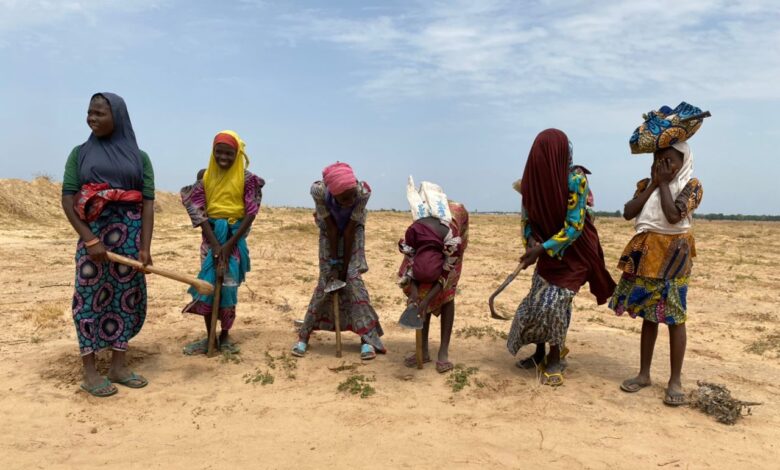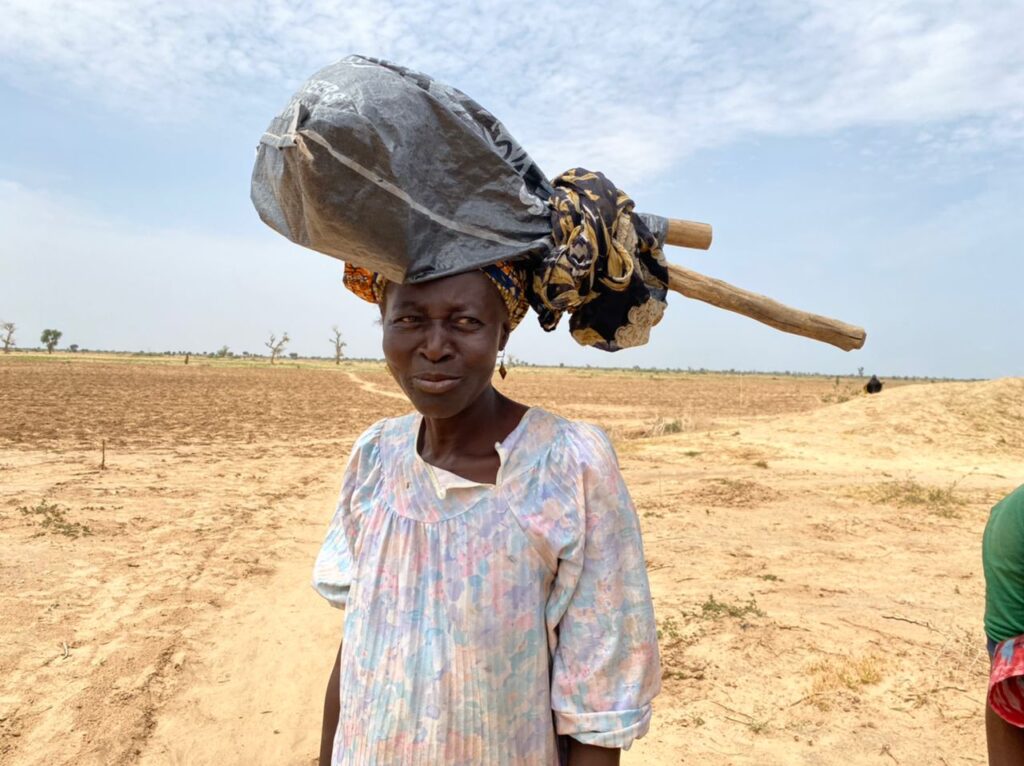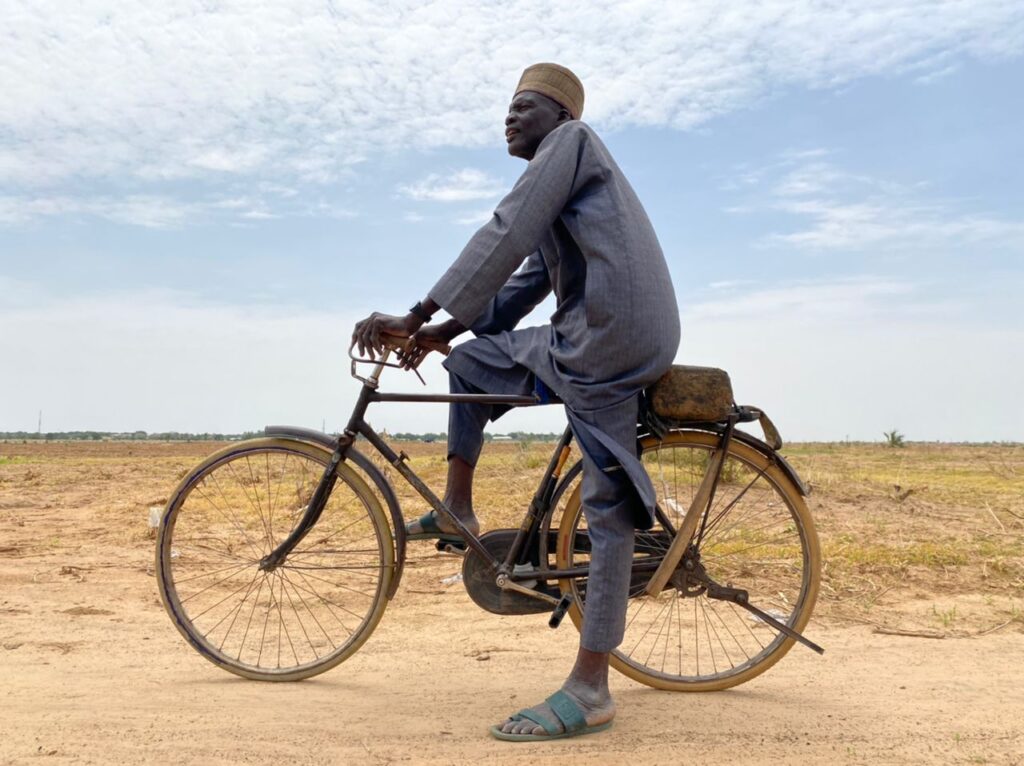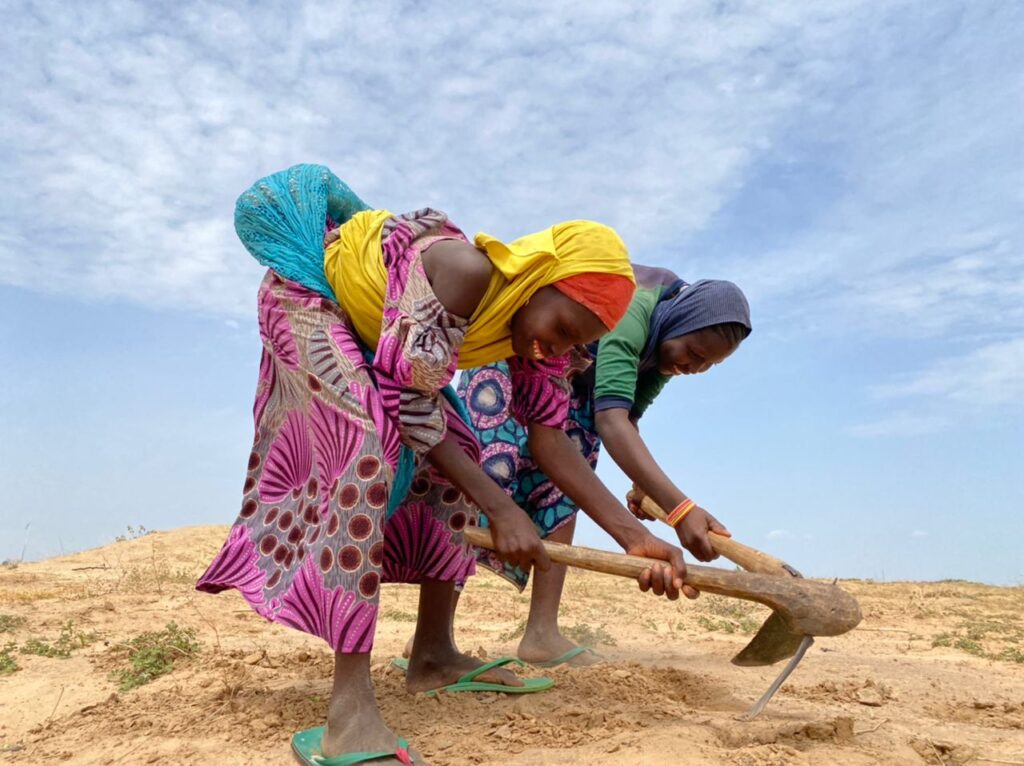Insurgents Terrorise Farmers In Northeast Nigeria, Worsen Food Insecurity
The 2030 Agenda for Sustainable Development identifies conflict as one of the major obstacles to achieving food security. As farmers continuously come under terror attacks in northeastern Nigeria, food insecurity has the potential to worsen.

Farmlands insecurity and violent incidents have stirred fear and terror in farmers in Borno, Northeast Nigeria, in recent times. This has had a negative impact on agricultural production, with some farmers leaving their farmlands and others not being able to extend the scale of lands due to most of the lands having become inaccessible because of insecurity.
The decade-long armed conflict in the country’s Northeast has exacerbated insecurity and terror every rainy season, doubling the index of violent attacks on farmers and death risks in accessing insecure farmlands.
In June 2022, Borno local farmers in Jere and Maiduguri witnessed high levels of terror attacks and kidnapping.
This reporter found from an interview with farmers and victims that the people carrying out the operations are usually armed with rifles and use motorcycles for their operations, a characteristic typical of terrorists all over Nigeria. They believe the group comprises members of the Boko Haram terror group.
‘‘The people come to our farms with motorbikes, holding guns. They carry people from the farms,” Cecilia Amos, a farmer in Jere, said.
The armed groups kidnap farmers and carry out several terror attacks on farmlands located on the outskirts of the University of Maiduguri and around the Dunomari and Usmanti communities in parts of Jere.
In June 2022, four people from the Mairi community in Jere were kidnapped. The group demanded ransom in millions in order to release the captives to their families and relatives. Some of these families told us that the group threatened to kill captives if demands were not fulfilled on time.
“If we don’t provide the demands, they said they will kill our father,” Usman, son of one of the victims of the abduction, said.
Mairi Kuwait community head, Mala Muhammed Lawan, said, “It is regrettable and sad to hear the story of four people from our community who were kidnapped.”
He described the incident as affecting the farm activities of local people in his community. “Families will have nothing to eat if they cannot access their farmlands. If farmers cannot go to farm, this will increase hunger and people will suffer.”
Adamu Gwada, a farmer for over 20 years, narrated how he was kidnapped and released. He spent three days in captivity, and the resultant trauma stopped him from visiting his farmland after he was released.
“This kind of incident has never happened to me, and I consider this fate,” he told HumAngle.
“Five armed men on motorbikes stormed on me and my friend, Baba Adamu, on the farm. Before we could move, they had already surrounded us. They directed me and my friend to climb one of the bikes, they drove us far away.”
According to Gwada, the group dropped them under a baobab tree in the bush, from where they began negotiating their release.
“They requested money from me and I had to offer one million for my release,” he said. “The armed group placed the ransom at ₦5 million until we eventually negotiated to ₦1 million. We spent three days in captivity until the money was delivered to them.”
Gwada is now home, with the hope for security to be restored in order for him to be able to return to the farm. “I urge the government to give us protection and support while farming remains a crucial part of our life,” he said.
True to the terrorists’ threat to kill the captives if a ransom wasn’t paid on time, one person from Maiduguri was killed during captivity.
‘‘We received the news that our father was dead two days after he was kidnapped,” Terah Danial, son of the deceased, told HumAngle. According to him, the money they requested as ransom was ready before the news of their father’s death reached them. However, Terah lamented that the killing of his father had nothing to do with the delay in ransom payment.
‘They killed our father because of his faith,” he said.
Usman Adamu, the son of Adamu Hassan, who was also kidnapped on the farm, said that the family had to struggle to raise the money demanded by the armed group. “We received donations from family and friends, added them up with the one we had, and were able to raise one million for the release of our father,” he said.
Farmers have expressed worries about the state of insecurity on farmlands.
Halima Usman has been farming for over 50 years and the life-threatening risks frighten her every day she is on her farmland, she says.

“We are vigilant because we know anything can happen to us. Whenever we see people running, especially when we sight motorbikes, we run back home and return after three days or even more,” she said. “This is something that happens often and the problem is, it affects our farming activities.”
Halima could not cope with the daily routine of farming because of fear and terror. She observed that weeds had outgrown her plants, making it hard to manage the farm. Sometimes they don’t visit their farms for up to seven days.
Bulama Ali, who used to farm grains and groundnut, has been terrified. His farming output has also dropped drastically this season. “We don’t wait long on the farm like before. Anything can happen and it is dangerous out here,” he said.

He added, “My greatest fear is we don’t know who is committing this insecurity and they are demanding large amounts of money if they catch a farmer. Farming is my preoccupation and nothing else I can do if insecurity increases.”
Some major demands made by the local farmers interviewed by this reporter are security services on all accessible farmlands around and adequate patrol of suspected routes of armed groups.

Ali, who has been farming for over 50 years, has called on the government to be accountable for securing the lives and properties of its people.
Security operatives around the environs responsible for monitoring local farmers and patrolling the farms gave an account of the terror incidents.
According to Ismail Nuhu, head of the Civilian Joint Task Force (CJTF) unit, the first incident of kidnap occurred in May when farmers began preparing their lands for planting. “Suspected Boko Haram kidnapped a girl child and that was the first incident that occurred this year in May,” he said.
In the same month, a herder’s son was kidnapped while they were grazing with their animals.
“We gathered that the herder’s family paid ₦300,000 for the release of their son,” Ismail said.
Nuhu identified some challenges they are facing with local farmers and why their security service is ineffective.
“We don’t have weapons and there is no mobility to aid our patrol on the farm, the patrol is essential because the farm is too wide for us to trek around.”
He recalled how they could not chase out suspected Boko Haram invasion on farmlands on many occasions because they didn’t have motorbikes to follow the group. The group uses motorbikes whenever they launch attacks.
According to Nuhu, one of the measures they implemented was providing pass cards and a specific time for farmers to go to the farm and return.
However, farmers complained that the time allotted is insufficient, which weakens performance.
About two years ago, over 43 farmers were brutally killed by Boko Haram in Koshebe, a community known for rice farming in Borno. Reports also indicated that 15 women were kidnapped from the same community.
“It is disheartening that more than 40 citizens were slaughtered while they were working in their farmlands,” Borno state governor, Babagana Umara Zulum, told newsmen after the incident.
“Our people are in very difficult situations, they are in two different extreme conditions: on one side, [if] they stay at home, they may be killed by hunger and starvation. On the other, they go out to their farmlands and risk getting killed by the insurgents. This is very sad,” Zulum reportedly said.
This clearly indicates that terror attacks on local farmers in Borno grievously impact farm production.
The 2030 Agenda for Sustainable Development categorically identifies conflict as one of the major obstacles to achieving food security, implying that one consequence of the attacks on local farmers is increased food insecurity.
Some nongovernmental organisations’ responses to farmers in conflict areas signify that farmers must be protected and supported in order to mitigate the impact of conflict.
One example is the collaborative initiative by UNDP and the Japanese government to distribute seeds, sprayers, fertiliser, and farming tools in Adamawa State.
In 2021, the Nigeria Security and Civil Defence Corps (NSCDC)’s Agro Rangers received equipment donations from the North East Development Commission. The Agro Rangers unit is supposed to protect farmers by forestalling attacks on farms and boosting farmers’ confidence in working on their farms. However, little has been seen of their operations at the moment in insecurity-prone areas.
This report was produced under the HumAngle Accountability Fellowship, with the support of the MacArthur Foundation.
Support Our Journalism
There are millions of ordinary people affected by conflict in Africa whose stories are missing in the mainstream media. HumAngle is determined to tell those challenging and under-reported stories, hoping that the people impacted by these conflicts will find the safety and security they deserve.
To ensure that we continue to provide public service coverage, we have a small favour to ask you. We want you to be part of our journalistic endeavour by contributing a token to us.
Your donation will further promote a robust, free, and independent media.
Donate HereStay Closer To The Stories That Matter




